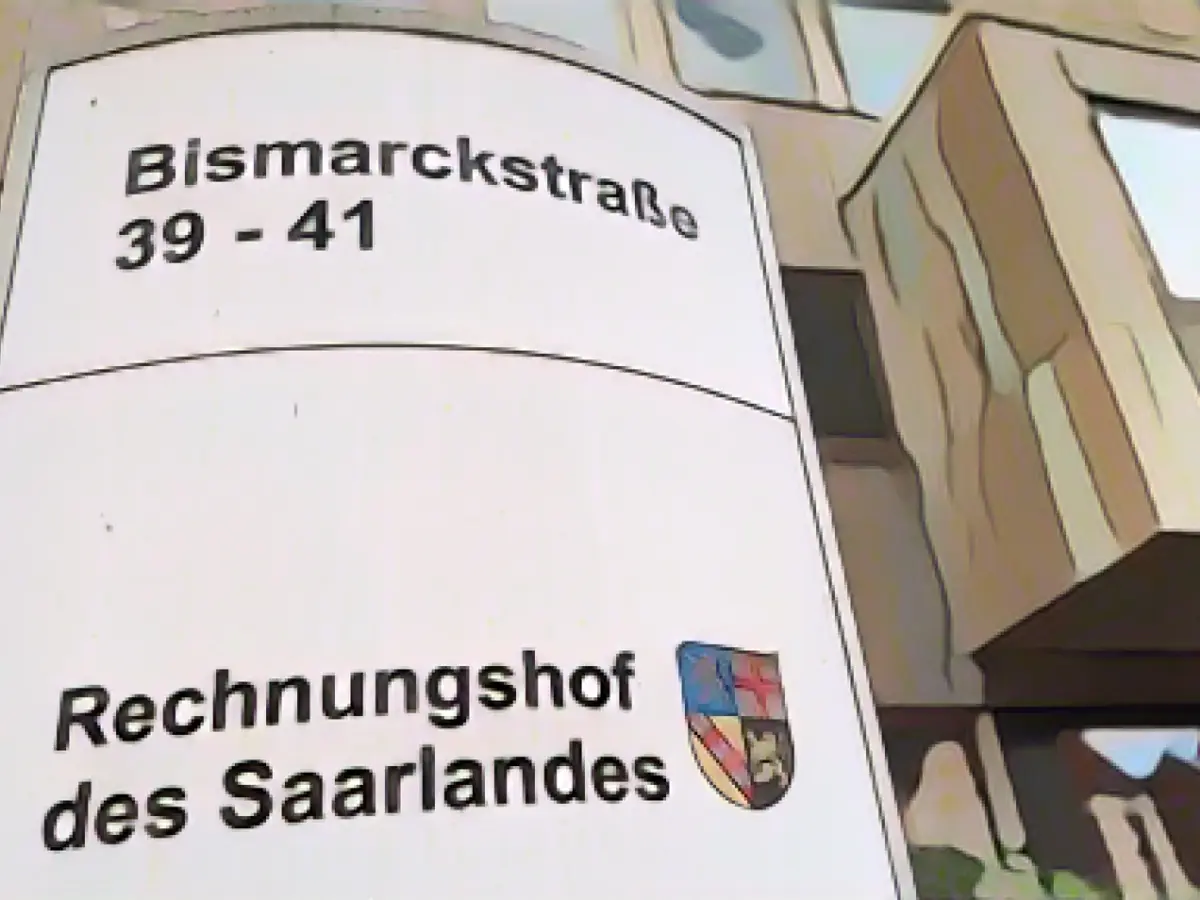Finances - Court of Auditors demands debt reduction from Saarland
The Saarland Court of Audit has called on the state to "significantly reduce" its debt level. According to the annual report presented by President Annette Groh on Thursday, it had increased by a further 43 million euros compared to 2020 to 14.592 billion euros at the end of 2021. Not only because of the restructuring aid agreement with the federal government, but also with regard to future generations, it is "of extraordinary importance to reduce the mountain of debt with all our strength".
In addition to the 12 so-called special funds, which have reached a new high of around 1.2 billion euros, the Court of Audit is particularly critical of the three billion euro transformation fund for structural change. "The term 'record debt' takes on a new dimension," said Groh. Following the ruling on November 15 in Karlsruhe, the Court of Audit is of the opinion that this fund "is not constitutional in its current form according to the standards of the Federal Constitutional Court".
The Court of Audit is critical of the fact that the fund is based on a one-off declaration of an emergency situation for 2022 and a corresponding credit authorization in the 2022 financial year. However, these should only justify actual borrowing on the capital market and the implementation of credit-financed measures over a period of several years. As a consequence, Finance Minister Jakob von Weizsäcker (SPD) recently announced that he would ask the state parliament to review whether an extraordinary emergency situation exists every year in future. Groh did not yet want to comment on whether this would be sufficient. She referred to the expert hearing in the Budget Committee on Tuesday, at which she will also give her assessment.
The President described the positive financial balance of 81 million euros in the core budget as pleasing. However, she criticized the fact that the investment ratio had simultaneously fallen from 9 to 8 percent.
The auditors discovered a number of other points of criticism in selected procedures in the state: these included the free e-charging stations for employees in the state parliament administration, the renovation backlog and additional costs at the state reception center in Lebach, the poor staffing levels at the investigative service of the tax offices and shortcomings in the tendering and distribution of the school fruit program. They also criticized the lack of or failure to take appropriate measures to improve the annual results of Saarland University Hospital. Instead of decreasing, the deficit had actually increased. The Court of Audit sees an "urgent need for action" here, according to Director Frank Finkler.
In addition to criticism, there were also suggestions for improvement - for example, how the heads of the 160 elementary school could be relieved of too much administrative work. Among other things, the Court of Audit suggests the use of school administration assistants, better support from secretarial staff and janitors, targeted training measures and better pay. It is now the responsibility of the state government to examine these recommendations for action "taking into account the financial leeway, define priorities and provide counter-financing".
Director Daniela Flasche discovered little that was pleasing from the point of view of the Court of Audit when reviewing the funding of art and sculpture in connection with construction measures: "Many works of art are neglected and unkempt, as neither the users nor the ministry feel responsible for them," she criticized. Yet even small interventions are often enough to present the art, which is financed by taxpayers' money, in an appropriate manner.
Saarland Finance Minister Jakob von Weizsäcker (SPD) explained that the results of the annual report would be examined intensively by the state government. "As long as there are no solid counter-arguments, appropriate improvements will be initiated." The state government shares the assessment of the State Court of Auditors that the Saarland Transformation Fund should be adapted in light of the ruling by the Federal Constitutional Court in mid-November on the Federal Government's Climate and Transformation Fund. The legal basis would be adjusted taking into account the court's advice as well as the Court of Audit's and experts' assessments.
With regard to the investment quota, the Minister pointed out that the new state government had already raised this at the start of the legislative period in the 2022 budget. "This increased level will be continued with the government draft of the 2024/2025 double budget," he announced. However, external factors - such as delays in construction - are likely to continue to result in fluctuations in the expenditure of budgeted investment funds.
Court of Audit of the Saarland
Lesen Sie auch:
- Goalkeeper Zentner will miss Mainz 05 against Freiburg
- Evacuation begins after bomb found in Plauen
- Searches for human trafficking: Berlin, NRW, Saxony
- The Court of Audit in Saarland believes that the 3 billion euro transformation fund for structural change, currently under scrutiny in Karlsruhe, may not be constitutional in its current form according to the standards of the Federal Constitutional Court.
- The SPD's Finance Minister Jakob von Weizsäcker of Saarland recently announced plans to ask the state parliament to review whether an extraordinary emergency situation exists every year, in response to the Court of Audit's criticism of the transformation fund.
- The Court of Audit in Saarland has suggested improvements to relieve heads of elementary schools of excessive administrative work, including the use of school administration assistants, better support from secretarial staff and janitors, targeted training measures, and better pay.
- Saarland Finance Minister Jakob von Weizsäcker also acknowledges the need to maintain the increased investment quota, as initially proposed by the new state government at the start of the legislative period in the 2022 budget.
- The Court of Audit has found that the Saarland Transformation Fund should be adapted in light of the ruling by the Federal Constitutional Court, as well as expert assessments and the Court of Auditor's own evaluation.
Source: www.stern.de








